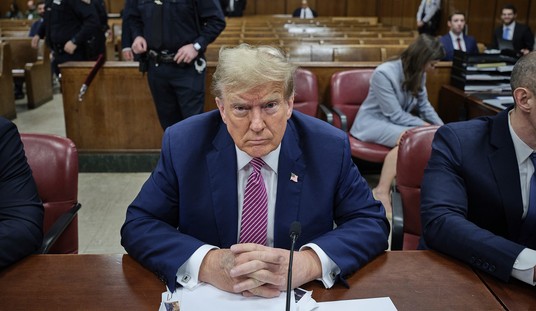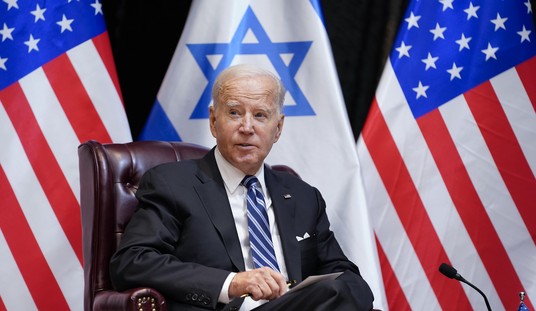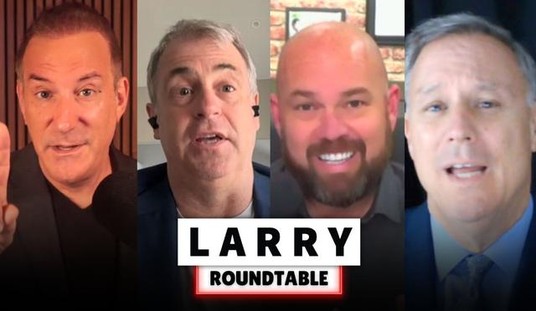WASHINGTON -- Voters sent a loud, angry message to President Obama and Congress last November that government is too big, and spends too much. Cut it.
Everyone seemed to get the message except the Democrats and the White House, who have been fighting tooth and nail to keep government spending roughly where it is now, with minor snips here and there.
That message got 241 Republicans elected to the House, putting them in charge of that chamber, and reduced the Democrats' forces in the Senate, giving Majority Leader Harry Reid a tenuous margin of four that keeps him in power.
Earlier this year, House Republicans sent over a bill that would cut the current budget -- six months into its fiscal year -- by $61 billion. While that is a teeny fraction of a nearly $4 trillion budget, it would be the biggest single-year, mid-course budget cut in U.S. history.
Yet even as small as the total spending cuts were, Reid declared them dead on arrival, and in a roll-call, party-line vote, it failed to get the 60 votes needed to cut off a Democratic filibuster.
Even if it were passed, Obama would have vetoed it.
Making matters even more complicated, the budget battle is being fought under a series of weekly budget deadlines. Congress has passed at least half a dozen tight extensions to keep the federal government funded until a budget is approved for the remainder of this fiscal year.
The latest extension expires April 8, leaving little time to hammer out a compromise between the two houses.
But House Speaker John Boehner's tea-party forces are growing more impatient with the Senate, with many if not most of them saying they will not only oppose anything less than $61 billion in budget cuts, they will not agree to any further time extensions.
Recommended
The tea-party insurgents, who probably have enough votes to defeat any compromise they deem insufficient, are daring Senate Democrats to accept their proposal or face a government shutdown April 8. Democrats, believing the GOP would be blamed for a shutdown, reply, "Go ahead, make our day."
House Republicans have plenty of reasons to stand firmly behind their mid-course budget cuts and push the Democrats to the brink in this fight. First, Congress is in an untenable fiscal position because the Democrats didn't pass a budget last year, leaving incoming Republicans to clean up the mess. Second, Reid and the Democrats have refused to send their own budget bill to the House, creating a stalemate. Instead, Reid offered a meaningless $10 billion in unspecified cuts.
Meanwhile, with time running out, cooler heads are prevailing. Top aides to Boehner, Reid and Obama have been negotiating behind the scenes to cut a deal that would essentially split the difference -- cutting spending by between $33 and $36 billion, on top of $10 billion in cuts already approved and enacted.
The argument now is where those cuts will fall. Republicans want the cuts to come out of their $61 billion bill, which hits the Democrats' sacred cows -- from public broadcasting to federal aid to education. But it's unclear at this point just whose programs will be gored. What is becoming clear is that House and Senate Republican leaders want a deal, and Boehner's given House Appropriations Committee Chairman Harold Rogers the green light to craft a new package of budget cuts for the remainder of this fiscal year.
"We're going to try to find some common ground. It's going to take some time," Rogers told reporters, adding that "the leadership has said for us to get started."
Vice President Joe Biden was sent to Capitol Hill Wednesday to talk to Democrats, a further signal that the White House is taking these backroom talks seriously. "We're all working off the same number now," Biden told reporters.
But whatever the compromise, can Boehner keep his tea-party forces from bolting?
With annual federal spending rapidly climbing toward an unprecedented $4 trillion under Obama's spending policies, and an estimated $1.6 trillion budget deficit looming in this fiscal year, cutting $40 billion isn't much.
But slashing this amount of spending in the middle of a fiscal year has never been enacted before.
Moreover, GOP leaders are telling their troops there are much bigger cuts to come when the House starts working on its fiscal 2012 budget this spring, when they expect to make deep reductions in both discretionary and entitlement programs.
Tea-party Republicans were sent here with clear marching orders: to get tough on spending and yield no ground. In the process, they have run into an obstacle-strewn legislative process in the Senate, which has become a burying ground for GOP proposals.
Shutting the government is not a strategy for cutting the budget down to size. The freshmen tea-party lawmakers need to learn how they can turn the system to their advantage and eliminate the political obstacles in their path. Defeating four Senate Democrats next year would be a good place to start.

























Join the conversation as a VIP Member